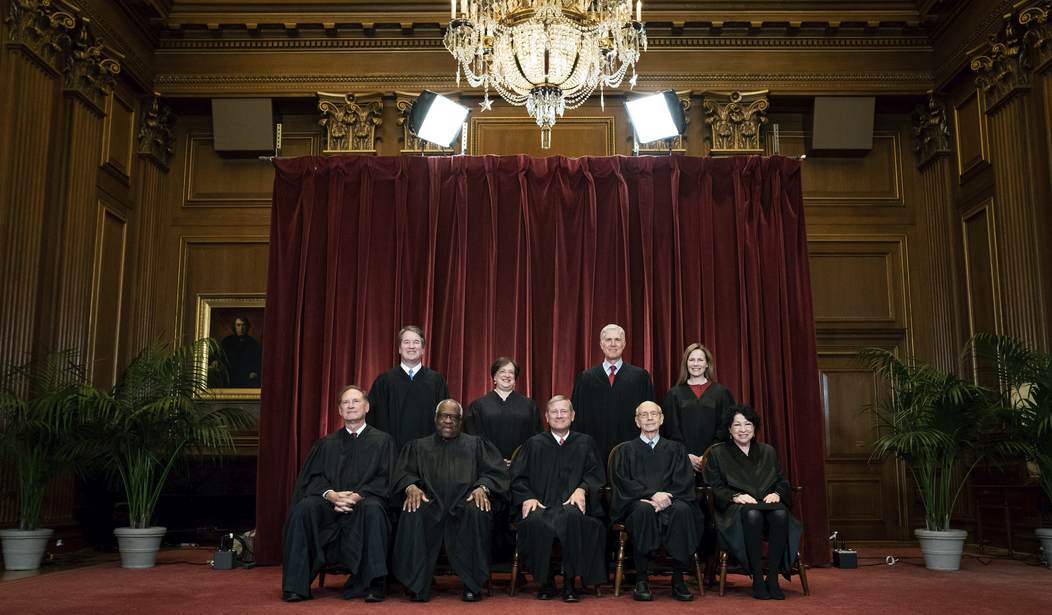A Guatemalan man successfully avoided deportation orders yesterday, thanks to a Supreme Court decision in his favor. Blame it on a technicality, a matter of one word written in the law, that allows him to remain in the United States.
It’s not Biden’s deportation freeze at play here. Agusto Niz-Chavez crossed the border in 2005. The Obama-Biden administration began deportation proceedings in his case in 2013. The government sent him a notice of the charges against him. Later Niz-Chavez was sent a second notice with the date and time of his court appearance. The legal question over his deportation was raised because of the fact that he received two notices. The law states that a single notice must be issued.
The timing of the multiple notices was at the heart of the case. Under federal law, an immigrant can only appeal a removal order if they’ve been in the U.S. continuously for at least 10 years, and the same law says that the clock stops once a notice to appear is issued.
Niz-Chavez argued the multiple notices he received did not constitute a single notice to appear as required by law.
That’s right. Niz-Chavez beat deportation because of the word ‘a’ in the law. A notice must be issued, not two or more. The Illegal Immigration Reform and Immigrant Responsibility Act of 1996 (IIRIRA) states that the government must provide “a notice to appear” on individuals for deportation. The stop-time rule comes into play. Niz-Chavez asked that the Supreme Court decide if the government must serve one specific document or if the government can issue more than one document over a period of time.
At the same time, the Immigration and Nationality Act (INA) provides that the attorney general may cancel the removal of a nonpermanent resident who has 10 years of continuous presence in the United States.
But under the so-called stop-time rule, the government can terminate those periods of continuous residence by serving “a notice to appear under section 1229(a)” of the INA.
In the Supreme Court’s 2018 ruling in Pereira v. Sessions, the court held that only notice “in accordance with” the definition in section 1229(a) triggers the stop-time rule.
Niz-Chazev argued that he was therefore eligible for relief from deportation.
Niz-Chavez has misdemeanor convictions for driving without a license. He has three young children, all of whom are U.S. citizens. An immigration judge, the Board of Immigration Appeals, and the U.S. Court of Appeals for the 6th Circuit all previously ruled against Agusto Niz-Chavez,
The vote was 6-3, with the conservative justices evenly splitting. Justice Gorsuch wrote the court’s opinion. Essentially, Gorsuch writes that the law is the law. Words matter. ‘A’ implies one document, not more than one.
“At one level, today’s dispute may seem semantic, focused on a single word, a small one at that,” Gorsuch wrote.
“But words are how the law constrains power. In this case, the law’s terms ensure that, when the federal government seeks a procedural advantage against an individual, it will at least supply him with a single and reasonably comprehensive statement of the nature of the proceedings against him.”
If people “must turn square corners when they deal with the government, it cannot be too much to expect the government to turn square corners when it deals with them.”
“Our only job today is to give the law’s terms their ordinary meaning and, in that small way, ensure the federal government does not exceed its statutory license. Interpreting the phrase ‘a notice to appear’ to require a single notice—rather than 2 or 20 documents—does just that.”
Justice Kavanaugh wrote the dissenting opinion. He wrote that Niz-Chavez “received written notice of the charges and all the required information, including the time and place of his hearing”, and it is absurd to argue otherwise. The ruling “spawns a litany of absurdities” that “will impose substantial costs and burdens on the immigration system.”
This decision throws a wrench into government efforts to expedite the removal of illegal immigrants. The current crisis on the southern border has clogged court systems and complicated the role of law enforcement trying to enforce the laws on the books. This is the type of loophole that should be looked at when and if Congress ever gets around to reforming immigration law. The Trump administration was in favor of Niz-Chavez’s deportation when the case was argued in November 2020. As the law stands, up to 4,000 illegal immigrants are eligible to receive “cancellation of removal” so as to keep families together.









Join the conversation as a VIP Member